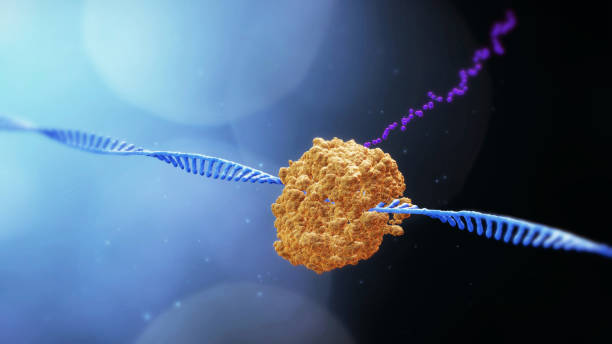Auto Immune Disease (The Menace Of Self-Protest) – 1
By Deborah Bamisaye
How does one explain Auto immune disease ooo?! Ok, let’s draw what it looks like from some Nigerian history.
Ever heard of the fights between Modakeke and Ife within Osun State? History has it that the internal crisis was rooted in cultural, political, economic, and historical factors, especially revolving around land ownership, identity, and political representation within the same state. These have led to repeated cycles of violence for nearly two centuries but though, there seems to be peace at the moment, we can only pray for total absence of violence in times to come.
At this point, I suppose you can put some words together to define or explain what Auto Immune Disease is.
The autoimmune disease in a layman’s language can also be called ‘self-battle’ or ‘self-protest.’ It refers to the part of a person’s immune system that mistakenly targets and attacks the person’s own healthy cells, tissues, or organs instead of protecting him/her from harmful invaders like bacteria or viruses. Normally, the immune system defends the body by recognizing and destroying foreign substances, but in autoimmune conditions, it malfunctions and treats normal body components as threats, causing inflammation and tissue damage.
This malfunction involves autoantibodies and autoreactive T cells—immune cells that wrongly recognize self-antigens (normal proteins in the body) as harmful and attack them. The autoimmune system is essentially the immune system acting against the body’s own tissues, leading to various autoimmune diseases depending on the organs or tissues affected.
Imagine two robbers invading your own house; then you came out because they were not armed and seeing the three of you, your own dog chooses to attack you instead of the robbers. That could be described as counter-productive, barbaric, out of focus, misfiring, you just name it.
Again, imagine your immune system is like a superhero team in your body. It protects you from germs, viruses, and other bad stuff that can make you sick.
But in an autoimmune disease, the superhero team gets confused. Instead of fighting the bad guys (germs), it starts attacking the good guys (your healthy body parts) by mistake!
Now, why is it so?
Doctors aren’t 100% sure why this happens, but here are some possible reasons:
Genes: Sometimes it runs in families.
Infections: Some germs might confuse your immune system.
Unhealthy lifestyle: Eating a lot of junk food or not getting enough sleep might make things worse.
Stress: Feeling worried or upset a lot can sometimes affect the body.
What diseases show up to prove that you may be suffering from auto-immune disease?
Let’s look at just a few popular ones as there are over 100 identified types:
Examples of autoimmune diseases include:
- Rheumatoid arthritis (RA), where the immune system attacks the joints causing inflammation and pain.
- Systemic lupus erythematosus (lupus), which can affect joints, skin, kidneys, lungs, and other organs.
- Type 1 diabetes, where immune cells destroy insulin-producing cells in the pancreas.
- Multiple sclerosis (MS), involving damage to the protective coating of nerve cells in the central nervous system.
- Graves’ disease and Hashimoto’s thyroiditis, autoimmune thyroid disorders causing hyperthyroidism and hypothyroidism respectively.
- Inflammatory bowel diseases like Crohn’s disease and ulcerative colitis, where the immune system attacks the intestinal lining.
- Psoriasis and psoriatic arthritis, causing skin inflammation and joint problems.
- Myasthenia gravis, causing muscle weakness due to nerve signal disruption.
- Scleroderma, leading to skin hardening and organ damage.
- Vasculitis, involving immune attack on blood vessels, etc.
These diseases are chronic and usually require lifelong management.
What on Earth could be Responsible?
Autoimmune diseases are caused by a combination of genetic and environmental factors that lead to a failure in the immune system’s ability to distinguish self from non-self. Main causes include:
- Genetic predisposition: Certain gene variants affect immune regulation, lowering the threshold for activation of self-reactive lymphocytes (T and B cells) that attack the body’s own tissues.
- Environmental triggers: Infections (e.g., Epstein-Barr virus), exposure to ultraviolet (UV) radiation, toxins, and changes in the microbiome can initiate or worsen autoimmune responses by activating or dysregulating immune cells.
- Defective immune regulation: Failures in immune tolerance mechanisms, such as defective elimination of self-reactive immune cells or imbalance between effector and regulatory T cells, allowing harmful immune attacks on self-antigens.
- Medications and chemicals: Some drugs may alter immune function and trigger autoimmune reactions in susceptible individuals. Making it dangerous for individuals who may be careful about other factors.
- Other factors: Smoking, obesity and environmental exposures also increase risks. Some don’t smoke directly but sit with people who do so. Some burn dirt or refuse and inhale the fumes, etc.
One can then say that: Autoimmune diseases arise when genetic susceptibility combines with environmental or other triggers to disrupt immune tolerance, leading to chronic immune attacks on the body’s own cells.
Symptoms:
Common symptoms to watch for in people with autoimmune conditions include:
- Fatigue, often profound and persistent
- Joint pain, swelling, and stiffness
- Skin problems such as rashes or thick, scaly patches
- Muscle aches and soreness
- Recurring low-grade fever
- Abdominal pain or digestive issues like bloating and diarrhea
- Swollen glands
- Numbness or tingling in the hands and feet
- Hair loss
- Weight changes (gain or loss)
- Symptoms related to specific organs, such as dry eyes or mouth, fast heartbeat, or nervousness in thyroid-related autoimmune diseases
These symptoms can vary widely depending on the specific autoimmune disease and may come and go in flare-ups. If you experience new, persistent symptoms like these, it is advisable to consult a healthcare professional for evaluation.
Auto Immune Disease can be Managed:
Autoimmune diseases cannot be cured yet, but they can be effectively managed through a combination of treatments and lifestyle changes.
Medications:
- Corticosteroids (steroids) to quickly reduce immune overactivity and inflammation
- Immunosuppressive drugs that selectively target parts of the immune system to reduce damage with fewer side effects
- Anti-inflammatory drugs like NSAIDs to ease pain and swelling
- Biologic drugs targeting specific immune components (e.g., anti-TNF for arthritis)
- Symptom-specific treatments such as insulin for type 1 diabetes, creams for rashes, or intravenous immune globulin (IVIg) to modulate immunity
- Plasma exchange to remove harmful antibodies in some cases
Lifestyle and Supportive Measures
- Regular physical activity or physical therapy to maintain muscle function and mobility
- Dietary changes emphasizing anti-inflammatory foods (e.g., Mediterranean diet) and avoiding triggers like gluten or processed foods
- Stress reduction techniques and good sleep hygiene to support immune balance
- Smoking cessation to reduce vascular inflammation
Emerging and Experimental Approaches –
- Precision medicine to tailor treatments based on individual immune mechanisms
- Blood stem cell therapies aiming to reset the immune system in severe cases
- Research into natural compounds like polyphenols with anti-inflammatory and immunomodulatory effects
Overall, treatment focuses on controlling immune system overactivity, reducing inflammation, managing symptoms, and improving quality of life.
How Effective are Lifestyle Changes in Managing Autoimmune Symptoms?
Lifestyle changes can be highly effective in managing autoimmune symptoms by reducing inflammation, improving immune function, and enhancing quality of life. The key lifestyle factors include:
- Diet: Diets like the Autoimmune Paleo (AIP) and whole-food, plant-based diets that eliminate common inflammatory foods (gluten, dairy, processed foods) and focus on nutrient-dense, anti-inflammatory foods can significantly reduce symptoms and inflammation. Omega-3 fatty acids and vitamin D supplementation also show benefits in lowering disease severity.
- Physical activity: Regular, tailored exercise improves joint mobility, reduces fatigue, enhances mood, and decreases disease activity in autoimmune conditions such as rheumatoid arthritis and multiple sclerosis.
- Stress management and sleep: Reducing stress through meditation, prayer, or relaxation techniques and ensuring adequate sleep support immune balance and symptom control.
- Avoiding harmful habits: Smoking, excessive alcohol, and sedentary lifestyle worsen autoimmune risk and symptoms, so avoiding these is crucial.
Overall, lifestyle modifications can complement medical treatments, reduce flare-ups, and improve patients’ quality of life, sometimes even allowing for reduced medication doses. While not a cure, these changes are a powerful part of effective autoimmune disease management.
It would be nice to expatiate more on this in the next edition, and since there are over a 100 diseases linked to this autoimmune system, we would love to take it seriously and treat it as it is – a menace, proffering ways of best management and cutting down the power of the protest it portrays.
See you next time!





